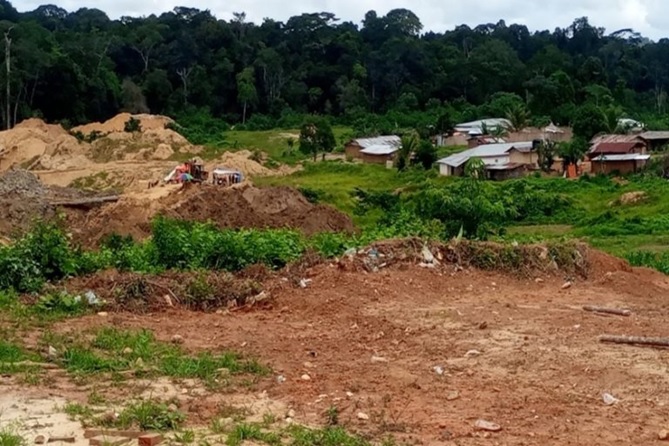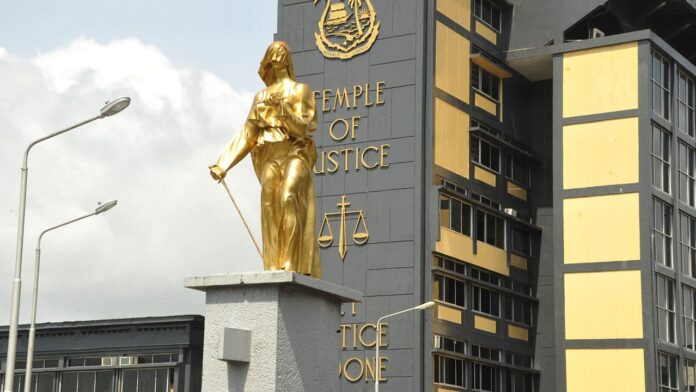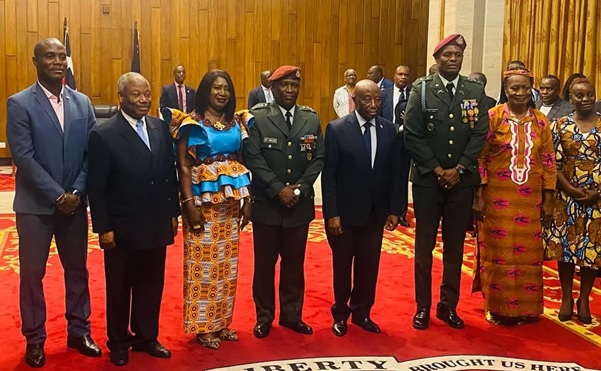Liberia’s mining sector has long been a key contributor to the country’s economic development. Rich in natural resources such as iron ore, gold, and diamonds, the industry attracts foreign investments and provides employment for thousands of citizens. However, a growing and often overlooked issue is the escalating presence of illegal mining activities across the country, which has far-reaching consequences for Liberia’s environment, economy, and social fabric.
Illegal mining has become a significant concern as it continues to bypass regulations designed to protect the environment and ensure the sustainable use of the country’s resources. It involves unregulated and unauthorized extraction of minerals, often by individuals or small groups, with little regard for the long-term effects on the environment. These miners typically use rudimentary tools and methods that contribute to significant environmental degradation, making the issue one of national urgency.
One of the most alarming consequences of illegal mining is the environmental destruction it causes. Across Liberia, vast stretches of forest are being cleared to make way for mining activities, disrupting natural ecosystems and threatening biodiversity. In counties like Grand Cape Mount, for example, illegal mining operations have polluted local water sources, which impacts the surrounding communities. These communities, already struggling with access to basic services, now face the added burden of searching for clean water as their rivers become contaminated with toxic chemicals used in gold extraction. This environmental degradation not only affects wildlife but also puts human health at risk.
In Lofa County, the use of dredges in rivers by illegal miners has led to siltation and the destruction of aquatic life. The presence of these dredges, despite being banned, remains a constant threat to the region’s aquatic ecosystems. As these miners extract gold, they destroy riverbanks and disturb the habitats of various species, many of which are critical to the region’s biodiversity. This situation poses a direct threat to the livelihoods of local populations who rely on these waterways for fishing and agriculture.
Illegal mining is not only an environmental issue but also an economic one. Liberia’s formal mining industry, which is governed by strict regulations, provides jobs and generates revenue for the country. However, illegal miners often operate outside the formal sector, contributing little to the national economy. The revenue that could be used to improve infrastructure, education, and healthcare is lost, while those benefiting from illegal mining are often not held accountable for their actions. In many instances, foreign nationals involved in illegal mining operations gain access to Liberia’s resources without providing any tangible benefits to the local communities.
The economic implications of illegal mining extend beyond just the loss of revenue. As miners engage in unregulated activities, they often destroy valuable mining sites that could otherwise be used by legitimate businesses. This leads to tensions between local communities and formal mining companies, which may find their operations impeded by the actions of illegal miners. These conflicts create an unstable environment that discourages future investment in the sector and ultimately undermines Liberia’s economic prospects.
Another troubling aspect of illegal mining is the social instability it generates. The influx of miners into remote regions, particularly in places like Gbarpolu County, has resulted in increased competition for land and resources, often leading to disputes and violence. Communities are left to deal with the social fallout, as illegal mining becomes a point of contention. In some cases, criminal groups have taken control of mining operations, further compounding the problem by introducing violence and organized crime into areas already struggling with limited law enforcement presence. As a result, the security situation in many mining regions has worsened, and public safety is increasingly under threat.
The rise of illegal mining has also exposed the weaknesses in Liberia’s governance and regulatory systems. The government has made attempts to address the issue, including the establishment of the Ministry of Mines and Energy, which is tasked with enforcing mining laws. However, the enforcement of these laws has been uneven and ineffective, largely due to the lack of resources and capacity to monitor mining activities, particularly in remote and isolated areas. In many instances, illegal mining operations continue unchecked for months or even years, with little consequence for those responsible.
At the forefront of the fight against illegal mining is Wilmot J.M. Paye, the current head of the Ministry of Mines and Energy. Appointed to this crucial role, Paye has been a staunch advocate for strengthening the regulatory framework surrounding Liberia’s mining sector. Under his leadership, the Ministry has sought to increase oversight of mining activities and enforce stricter compliance with environmental standards. Paye has also worked to improve the transparency of mining contracts and promote the development of small-scale, legal mining operations as an alternative to destructive illegal activities.
In November 2024, Minister Paye addressed 19 mining cooperatives at an acquaintance meeting, where he emphasized the urgent need for Liberians to safeguard their resources from exploitation and prioritize national interests. Paye issued a strong call for Liberian mining cooperatives to sever ties with foreign entities involved in illegal mining practices, warning that such activities obstruct national development and deprive Liberians of the benefits of their mineral wealth. “No foreigner will infiltrate our communities without collaboration from our people,” Paye asserted, stressing that enabling foreign operators through local facilitation undermines Liberia’s economic empowerment.
Paye outlined a series of measures to address irregularities in the sector, including the re-profiling of all mining license holders, particularly those operating under Class ‘B’ and ‘C’ licenses. He also stressed the importance of increased regulatory oversight, ensuring that mining operations comply with the law. As part of his commitment to reforms, Paye announced plans to establish fully operational county offices to handle license renewals, resolve disputes, and provide essential services to miners. He further revealed plans to equip these offices with mobility and field equipment to enhance the Ministry’s reach, allowing for better accessibility in remote areas.
Communities that are most vulnerable to the impacts of illegal mining include Grand Cape Mount, Lofa, Gbarpolu, and Bong counties. These areas are rich in gold and diamonds, making them prime targets for illegal miners. In these counties, the lack of infrastructure, coupled with the limited reach of government agencies, makes it easier for illegal mining activities to flourish. Moreover, in regions where poverty levels are high and employment opportunities are scarce, the lure of immediate financial gain from illegal mining can be irresistible. This cycle of exploitation exacerbates existing social and economic inequalities.
Liberia’s natural resources should be a source of national pride and prosperity, but illegal mining threatens to rob the country of its ability to manage and benefit from these riches. Without a coordinated and comprehensive approach to combat this issue, Liberia’s environmental future remains uncertain, and its economic prospects continue to be undermined. There is a growing need for government intervention and stronger enforcement of existing mining laws. The government must invest in the capacity to monitor mining activities, engage with local communities, and ensure that those benefiting from Liberia’s resources contribute to the country’s development.
A key part of addressing the problem lies in improving the livelihoods of communities that rely on illegal mining for their survival. This could be achieved through alternative livelihood programs that offer sustainable income opportunities and reduce the dependence on illegal activities. Education, training, and the development of small-scale, environmentally friendly mining techniques could help to shift the focus away from destructive practices.
Another crucial element in tackling illegal mining is strengthening the rule of law and ensuring that those responsible for illegal mining are held accountable for their actions. Liberia’s judiciary must take a more active role in prosecuting individuals involved in illegal mining and related activities. The enforcement of laws that protect the environment must also be prioritized, with harsher penalties for those caught engaging in unlawful mining practices.
The international community, too, has a role to play in supporting Liberia’s efforts to combat illegal mining. The support of foreign governments, NGOs, and development partners could provide the financial and technical resources necessary to strengthen Liberia’s mining sector and address the social and environmental consequences of illegal activities. Furthermore, international pressure could help to hold companies operating in Liberia accountable for their actions, ensuring that they follow the laws and regulations that govern the mining industry.
The fight against illegal mining in Liberia is complex and multifaceted, requiring a concerted effort from the government, local communities, international partners, and the private sector. If Liberia is to secure a future where its mineral resources are managed sustainably and benefit all its citizens, immediate action is required. The country must prioritize the fight against illegal mining, focusing on protecting its environment, preserving its social stability, and ensuring that its resources are used for the benefit of its people.
The threat posed by illegal mining in Liberia is one that cannot be ignored. The damage to the environment, economy, and society is significant, and without decisive action, the long-term consequences could be dire. It is crucial for all stakeholders to come together to address this issue and ensure that Liberia’s mining sector remains a force for positive change and sustainable development in the years to come. Under the leadership of Wilmot J.M. Paye, there is hope that the Ministry of Mines and Energy will continue to play a critical role in curbing illegal mining and creating a more sustainable future for Liberia’s mining sector.







